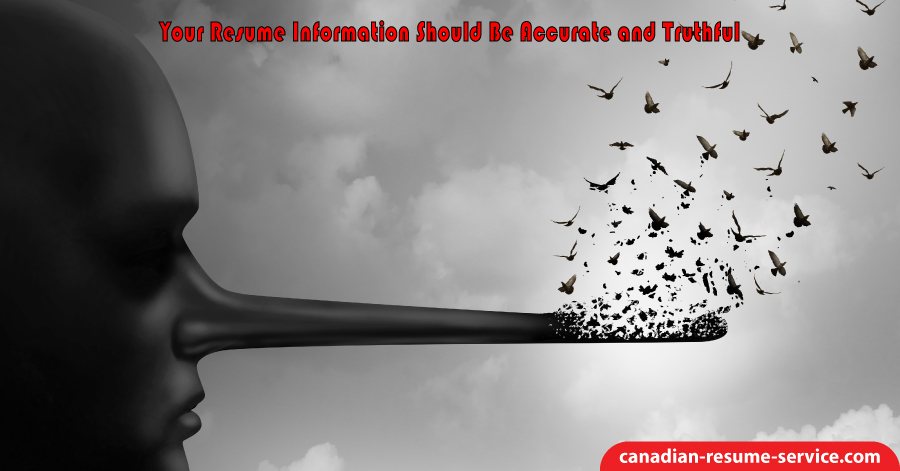Creating a standout resume requires more than listing skills and experiences—it requires precision, honesty, and a focus on delivering an authentic representation of your qualifications. Your resume serves as a bridge between you and your prospective employer, making it essential to ensure every word builds trust and conveys value.
This guide explores how to craft a truthful, accurate, and impactful resume while addressing common pitfalls and strategies for creating a lasting impression.
The Importance of Accuracy and Honesty
A compelling resume summary is your gateway to capturing an employer’s attention. This concise section provides a snapshot of your professional achievements, skills, and unique value proposition. However, the power of a well-crafted resume summary can only be fully realized when the information it contains is authentic.
Key Points:
Trust Building: Employers value candidates who demonstrate integrity from the outset. Accuracy in your resume reflects your professionalism and reliability.
Professional Image: A resume riddled with inaccuracies or inconsistencies can damage your credibility and eliminate you from consideration, even for roles you’re well-qualified to perform.
Ethical Standards: Lying on a resume, no matter how small the falsehood, is unethical and counterproductive. Honesty ensures you can confidently discuss your qualifications during interviews without fear of exposure.
The Consequences of Fabrication
Why Even Small Lies Can Backfire
Embellishing details, such as job titles, responsibilities, or skills, might seem tempting to improve your odds of landing an interview. However, the risks of this approach far outweigh any perceived benefits. Here’s why:
Background Checks: Many companies conduct rigorous background verifications to ensure candidates’ claims align with reality. Even minor discrepancies can lead to disqualification.
Reputation Damage: Misrepresentation can tarnish your professional reputation, making it difficult to rebuild trust with future employers.
On-the-Job Challenges: Claiming proficiency in skills you lack could lead to underperformance, loss of credibility, or even termination.
Ethical Implications: Lying compromises your integrity, an essential attribute employers value in any candidate.
Example Response for a Thank You Letter:
“Thank you for giving me the opportunity to discuss my qualifications for the [Position Name]. During the interview, I realized the importance of highlighting [specific skills or experiences]. I want to assure you that every detail shared in my resume and during our conversation reflects my genuine abilities and achievements. I am committed to upholding the highest standards of integrity, as I believe it is the foundation of professional success.”
Preventing Unintentional Errors
The Danger of Mistakes
Not all inaccuracies stem from deliberate dishonesty. Typos, outdated information, or misrepresentations of dates and titles can occur unintentionally but can still harm your application. Employers often view even honest mistakes as red flags, making it vital to approach resume writing meticulously.
Steps to Safeguard Against Errors:
Verify Details: Cross-check your GPA, certifications, employment dates, and job titles against official records.
Review Content: Revisit achievements and project contributions to ensure credit is accurately distributed. For example, if you collaborated with a team to achieve a goal, highlight your role while acknowledging the group effort.
Seek Feedback: Ask trusted colleagues, mentors, or professional editors to review your resume for inaccuracies or unclear statements.
Document Proof: Be prepared to provide verification of your claims, such as certificates, reference letters, or project portfolios.
Example Thought Process for Verification:
Did I contribute to a 25% sales growth last quarter, or was it closer to 15%?
Was my role in launching the initiative “Project Manager” or “Assistant Project Manager”?
Example Response for a Thank You Letter:
“I appreciate the opportunity to clarify my contributions to [specific project]. While discussing my role during the interview, I realized the importance of emphasizing the collaborative nature of our success. My ability to work effectively as part of a team was instrumental in achieving our objectives, and I am confident this skill will benefit your organization.”
Finalizing and Polishing Your Resume
Once you’ve drafted your resume, refining it is essential to ensure it meets professional standards. A polished resume reflects your attention to detail and dedication to excellence.
Tips for Finishing Touches:
Proofread: Conduct a comprehensive review for grammar, punctuation, and spelling errors. Utilize tools like Grammarly or enlist the help of a second pair of eyes.
Format for Readability: Use clean, consistent formatting. Opt for professional fonts, clearly defined headings, and sufficient white space.
Tailor for Each Job: Customize your resume to align with the specific job description.
Highlight relevant skills and experiences to demonstrate your suitability for the role.
Update Regularly: Keep your resume current by including recent achievements, certifications, or skills.
Example of Tailoring Your Resume:
For a marketing role: Emphasize digital campaign management, social media analytics, and creative content development.
For a leadership role: Highlight team management, strategic planning, and budget oversight.
Addressing Unusual Circumstances
Sometimes, unique situations arise during interviews or while tailoring your resume, such as gaps in employment or career transitions. Address these scenarios proactively to reinforce your narrative.
Example of Addressing Employment Gaps in a Thank You Letter:
“Thank you for allowing me to address my career pause during our interview. As I mentioned, this time was spent pursuing advanced certifications and volunteer work, which have enhanced my skills in [specific areas]. I am confident these experiences position me to contribute effectively to your team.”
Conclusion
Accuracy and honesty are the cornerstones of a strong resume. By presenting an authentic, well-organized, and tailored document, you set the stage for meaningful interactions with prospective employers. Remember, a truthful resume not only enhances your chances of securing the right role but also establishes the foundation for long-term success in your career.
If you’ve found these tips helpful or have unique insights to share about resume building, leave a comment below. And if you need personalized assistance, don’t hesitate to reach out!

